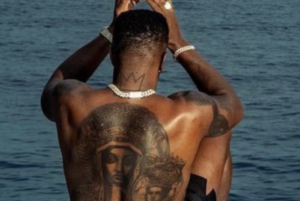
Diddy’s Body Art Celebrates Haitian Vodou
Just as Evangelical “leaders” are busy advocating for Haitian Settler Colonialism in Springfield, Ohio, an unnoticed detail of Diddy’s body art provides a warning sign of a dangerous religious influence. Daily, evangelicals working as Shepherds for Sale for globalist organizations seem to all get the same memos. And a popular



